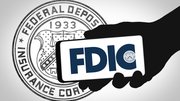News
Do we still need ATM interchange?
Editor Ann All thinks a recently filed class action lawsuit may provide a good reason for the ATM industry to reconsider the need for interchange.
September 15, 2004
Any questions over the legality of ATM surcharges were ostensibly answered when the Supreme Court in May 2003 refused to hear the appeals of two California cities (Santa Monica and San Francisco) that had blocked surcharging, only to have their bans overturned by a district court.
 |
Ann All |
But just like Jason Voorhees, the goalie mask-wearing slasher in all of those "Friday the 13th" movies, the issue just refuses to die. (I'm too embarrassed to tell you how many hours of my early adolescence I wasted in darkened theaters, covering my eyes during the especially gruesome parts of these flicks.)
A recently filed class action lawsuit contends that several big ATM operators -- including Concord EFS, Bank of America, JP Morgan Chase, Citibank, Sun Trust Banks, Wachovia Corp. and Wells Fargo & Co. -- are in collusion to charge "unnecessary" and "fixed" interchange fees to justify "artificially inflated" customer fees.
While this is an intriguing premise, I think it's also just plain wrong.
Interchange -- the fee a financial institution pays to an ATM operator when its customer uses the machine -- is set by EFT networks like Star and NYCE. While such networks were once almost exclusively owned by financial institutions, that is no longer the case.
First Data Corp. is purchasing Star, the nation's largest network, and its parent Concord EFS. First Data owns a wide variety of payment businesses, some of which compete with financial institutions.
Let the market decide
Interchange has remained relatively static in recent years. While some changes have occurred, they've been influenced by market forces -- not a group of bankers in a smoky room. Like ATM surcharges, interchange tends to adjust itself according to the market.
For example, the networks increased interchange for ATMs located outside of bank branches. The reason: the costs of operating those machines are higher. Without higher interchange to help defray those costs, few if any financial institutions would want to put their ATMs in non-branch locations.
The suit also doesn't seem to take into account the fact that independent operators, not FIs, have deployed the majority of new ATMs in recent years. The two are entirely different animals, with entirely different business models. Hard to imagine them colluding on anything.
I believe this suit may have been filed in part because of the estimated $3.5 billion settlement agreed to by MasterCard and Visa in an antitrust suit filed by Wal-Mart and other merchants, which contended that the card companies conspired to inflate debit interchange.
The case against ATM fees just doesn't seem as clear cut to me, for the reasons I've stated above.
FIs also establish their own "foreign fees," charged to customers to help cover the cost of interchange paid when those customers use ATMs outside an FI's network. While many large banks charge as much as $2, some smaller FIs (my credit union included) charge as little as 50 cents.
Is interchange still needed?
Interestingly, however, this case could make more people aware of interchange -- which is invisible to the consumer. Although interchange is certainly an industry sacred cow, I question whether the need for it remains the same as in the pre-surcharge years of ATMs.
As with all consumer fees, I think ATM charges should be as visible as possible to the end user. Several countries, including the UK, have moved in the direction of a pure direct surcharging model.
In the UK, acquirers can receive either a surcharge or interchange -- but not both -- for ATM transactions. In general, FIs opt for interchange, while IADs (independent ATM deployers) collect a surcharge. According to a representative of Link, the country's national ATM network, just a little over 2 percent of ATM transactions in the UK currently involve a surcharge; interchange fees apply to all other transactions that are not on-us.
I think doing so in the U.S. would make sense. Consumers have shown they are largely willing to pay surcharges. When using the ATM, they are presented with a clear choice of agreeing to pay a fee -- or canceling a transaction and going elsewhere to get cash.
Few consumer fees are as market driven as ATM surcharges; that's why one tends to find the same fee being collected at every ATM on Bourbon Street in New Orleans, for example.
Going to a direct surcharge model would remove all suggestions of collusion -- true or not.
 ChatGPT
ChatGPT Grok
Grok Perplexity
Perplexity Claude
Claude












